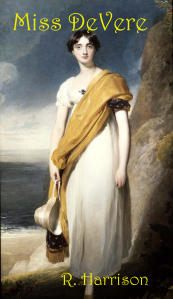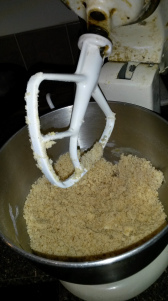R. Harrison's Blog, page 20
June 18, 2016
The Art of Deception 19 #wewriwar #amwriting
or Pride and Extreme Prejudice

Welcome to Weekend Writing Warriors. This week continues a spy story set in late Georgian England, the year before Trafalgar. Last week, Alice trapped Roderick and turned him into the militia. Eventually, and only after showing them his warrant, Roderick managed to free himself. The next morning, he’s waiting for her. His friend, Edward, finally gets him to agree to knock it off. They’re just about to enter a public house when Roderick spies Alice again.
Roderick followed the servant girl while she walked along the street; she turned to talk with a street vendor, and he dodged into a doorway; then she continued on her way, apparently unaware of his presence.
He followed, carefully avoiding her direct view; the streets, crowded with people, helped him keep hidden.
Minutes later, she turned into a stylish Modiste’s establishment, Madame Fanchion’s; he struggled through the crowded street to reach the entrance; when he tried to follow her inside he ran into a young woman on her way out, “I’m sorry; I nearly knocked you over.”
The young woman was obviously not a maid, as she was dressed in the latest style, white muslins peeking from her Spencer, a string of pearls around her neck, and wearing nothing that could vaguely resemble an apron and the dark plain dress of a maid. While she carried her dark pelisse over one arm, she held herself with the bearing implicit in a member of the ton, a member of the nobility.
She curtseyed, “I’m sorry; should have been watching out myself.”
“Are you hurt?”
“No,” she smiled, “Not at all.” Lord Roderick could not help but notice she had a beautiful smile, “Can I help you?”
Please see the other talented writers in Weekend Writing Warriors.
One of the things that Alice practiced incessantly at Mrs Hudson’s school was the quick change. Not necessarily a complete change of clothes, but making enough of a difference to fool most people most of the time. She’s put it to good use.
The featured image is a fashion plate from 1814, which is a little later than this story. It shows a Spencer jacket worn over muslins, which is what Alice is wearing. Her dark ‘pelisse’ could could be something else.
Like poor Cecelia, “The Curious Profession of Dr Craven” is back from the dead.
I’ve released a sweet regency romance, Miss DeVere  This is a fun read.
This is a fun read.
Frankenkitty is available.
 What happens when teenagers get to play with Dr Frankenstien’s lab notebooks, a few odd chemicals and a great big whopping coil? Mayhem, and possibly an invitation to the Transylvanian Neuroscience Summer School.
What happens when teenagers get to play with Dr Frankenstien’s lab notebooks, a few odd chemicals and a great big whopping coil? Mayhem, and possibly an invitation to the Transylvanian Neuroscience Summer School.


June 17, 2016
My Book’s Movie Dream Cast #lifebookswriting
The Curious Profession of Dr Craven is a rollicking good read with some sizzling hot gypsy … wait, that’s “Edmund – a butler’s tale.” It’s a historical romance, albeit a rollicking good read too, just with no gypsies. The hero is a man who is trying to live down his guilt. He believes he accidentally killed his wife by infecting her with “childbirth fever” when she gave birth to their children. The heroine is a young woman whom he rescues when he is preparing to anatomize a female to further his studies of disease and the mechanics of the human body. Initially, she is almost a blank slate, having forgotten much of her previous life. With good reason, her father is more than a bit of a scoundrel – a real rotter, her hand has been auctioned off to the highest bidder to save the family mansion, and she’s simply bored, when she isn’t frustrated. When she finally recovers, she and Dr Craven are mutually attracted to each other. Scratch that, they’re desperately in love, a love her father intends to squelch. Unscrambling this mess takes the combined efforts of Dr Craven, his older brother the Earl of Craven, a dissolute French Duke and even the visit of a mysterious French Baron to the sacred floor of Almack’s.
Here’s my ideal cast.
Dr Craven -> a young Colin Firth (the older one would be great as his older brother, the Earl of Craven) otherwise David Tennant or Matt Smith
William 1st Earl of Craven current Colin Firth or Steven Fry.
Henrietta/Cecelia -> a young Honeysuckle Weeks
Mary (Dr Craven’s maid) -> Jane Lynch
William and Phillip Overly –grave robbers and scallywags-> Simon Pegg and Nick Frost.
Lord Patterson -> Donald Sutherland
George Patterson (Cecelia’s brother)-> Martin Freeman
Ellen Patterson ->Kristen Wiig
Mr Sharpless -> Hugh Laurie
Mrs Oakham -> Sigourney Weaver


June 16, 2016
Sort of appropriate, these days and this time.
1 Corinthians 13:4–7
Love is patient and is kind. Love doesn’t envy. Love doesn’t brag, is not proud, doesn’t behave itself inappropriately, doesn’t seek its own way, is not provoked, takes no account of evil; doesn’t rejoice in unrighteousness, but rejoices with the truth; bears all things, believes all things, hopes all things, and endures all things


June 14, 2016
A Man Said to the Universe
Stephen Crane, 1871 – 1900
A man said to the universe:
“Sir, I exist!”
“However,” replied the universe,
“The fact has not created in me
A sense of obligation.”


June 11, 2016
The Art of Deception 18 #wewriwar #amwriting
or Pride and Extreme Prejudice

Welcome to Weekend Writing Warriors. This week continues a spy story set in late Georgian England, the year before Trafalgar. Last week, they exchanged words, and Roderick gave her a French recognition signal, which she accidentally – or perhaps on purpose, answered. This week she returns the favour. They’ve exchanged words and she’s walking off – to do whatever housemaids do.
He waited a few seconds and followed her; as he watched from a distance, she put a small piece of paper under a stone near a street corner, and then marked the wall with chalk; it didn’t take her long, and had he not been watching her carefully he’d have missed the whole thing.
“Come on you laggard,” Roderick called to his friend, “We’ve got her; she’s a real professional … one of the smoothest dead-drops I’ve ever seen.” He dashed up, took the paper from under the stone, and started to read it.
“See, Edward, it is a count of the ships; profes-”
He didn’t get to finish his statement; a member of the militia, delegated to watch the docks, tapped him on the shoulder and said, “Sir, if you’d please; you’re coming with us.” Another soldier stood behind him, ready to back him up should force be required.
“What for?”
“We think you’re a spy … information has been laid to that effect.”
“What do you mean?” Roderick rapidly looked around, and then saw the chit, still carrying her basket, standing a few yards away; she smiled at him, mockingly curtsied, and then turned to continue her daily chores.
Please see the other talented writers in Weekend Writing Warriors.
Would you have noticed the chalk mark?
I’ve released a sweet regency romance, Miss DeVere  This is a fun read.
This is a fun read.
Frankenkitty is available. What happens when teenagers get to play with Dr Frankenstien’s lab notebooks, a few odd chemicals and a great big whopping coil? Mayhem, and possibly an invitation to the Transylvanian Neuroscience Summer School.
What happens when teenagers get to play with Dr Frankenstien’s lab notebooks, a few odd chemicals and a great big whopping coil? Mayhem, and possibly an invitation to the Transylvanian Neuroscience Summer School.
Good day Miss, isn’t it? The little birds are flying in a cloudy sky. She replied, “But it’s clear. Where are you going Sir?”


June 10, 2016
My 5 top books & why #LifeBooksWriting
The most difficult part of this is picking out only five books.
Roughing it – Mark Twain
This is Twain’s first real book. By the time it was published he’d written newspaper copy, become a well known spoken humorist, and published a number of short pieces of humour. He was a newspaper correspondent at the time. It describes his journey from an ex-confederate guerrilla (barely mentioned) to a successful speaker on the verge of a successful career. His gift for dialog and digression is just starting to strut its stuff. The pacing is a little slow for modern audiences, and there are a lot of horse jokes that don’t make much sense today, but it’s a great book. It’s also my favourite book to take backpacking because it withstands many re-readings under an led headlamp.
Pride and Prejudice – Jane Austen
This is nearly the perfect novel. Anyone who has any pretense of writing regency romance had better be familiar with it. I could have put in a Georgette Heyer novel, but Austen’s characters are much deeper and her ear for dialog much stronger.
The Forever War – Joe Hadleman
I met this book at college as an undergraduate. It’s innovative, anti-war and treats the effects of relativity in a more realistic manner than most. I also remember it because the good friend who showed it to me was run over while bicycling by a drunk shortly afterwards.
The Blessing Way – Tony Hillerman
I could have picked any of his works. Their cultural sensitivity is fantastic, and they describe New Mexico to a ‘T.’ As an author, he was especially skilled at building a sense of menace and evil with tiny little hints as the story progresses.
The C Programming Language – Kernighan and Ritchie
Sorry about this, but this book set me on the path from experimentalist to computer scientist. I bought myself a copy of the first printing of the first edition and dedicated my birthday to learning the language. The idea of using structs (an ancestor of objects) to extend the language suckered me into software engineering and almost literally made me what I am today.


June 9, 2016
We’re back, baby.
Like poor Cecelia, “The Curious Profession of Dr Craven” is back from the dead. It’s been edited, to catch some annoying and very minor errors, though not to remove either occurrence of “get over it” which according to Google n-gram viewer was used in the Regency in much the same way as it is today. (I take comments seriously. I rechecked because it is important to me to be correct, and I checked the usage in the books it summarized.) Literally, “literally” is another phrase that was used in the modern somewhat ironic sense – even in the 18th century. Pope waxed wroth about it, though to quote Marx, why does Roth need waxed?
“Nice” is one word that you have to watch. It can mean nice in the sense of pleasant or good, but it can also mean somewhat common or nasty. (e.g. “That’s a nice kettle of fish you’ve got us into” from Laurel and Hardy.)
On the other hand I did remove “washout” which is a relatively modern term. Personally, the most annoying little error was the shift from “Dr.” to “Dr” in the latest British usage. I also caught a few excess uses of the passive voice. Editing truly is never finished. As a self-pub’ed author I can make changes to fix these little uglies.
Here’s the start of chapter 2. Up until it gets about as hot as Amelia and I usually write. Chapter 1 can be found here.
Alive, Maybe.
The sun shining through the window woke Cecelia. She sat up in her bed with a start and examined the room. The bed curtains had been pulled back so she could see the tattered wallpaper and small fireplace across the room. The low cooing of a wood pigeon could be heard through the glass of the window. Her head swam for a moment. Then she searched the place. It wasn’t her bedroom. A maid was drowsing in a chair by the fire.
“Miss, where am I?”
“You’re in Dr Richard Craven’s house, Miss.” The maid rose, curtsied, and rang the bell. Then she continued, “Is there anything you need?”
“Who are you?”
“My name’s Mary, Miss. Would it be too much to ask yours?”
Panic gripped Cecelia. “I am,” she paused, “I don’t know!”
“There, there, Miss. The doctor will know what to do for you.”
“The doctor? How did I get here?”
“’Tis best he tells you, Miss.”
“Mary.”
“Yes, Miss?”
“Am I alive?”
“Yes, Miss you are. We’re in my master’s house at Streatham, England. It looks to be a lovely summer day.”
“It’s just, I remember, I remember dimly. It’s so strange.”
“Wait for Dr Craven, Miss. He’ll answer that.”
A few moments later, Dr Craven dashed into the room. He was a tall, well-formed man with dark hair. Despite his youth, a widower. Close behind him came two young children, his exuberant four-year-old twins. While he stood in the door, they rushed past him and jumped into the bed with her. Their governess, Miss Grimstock, a severe, somewhat older-looking woman was beginning the long slow decline into spinsterhood. She puffed from her exertion as she caught up with them.
“Thomas, Mariah, please come here. Let your father do his work.”
They replied in unison, “No.”
“Please let them stay. They’re so lovely. I’m sure I’m in Heaven with cherubs.”
“Further acquaintance with them will convince you otherwise. Children, please do as Miss Grimstock requests.”
“Daddy?”
He frowned at them and then added, “I must check on our guest. If she’s well enough, I’m sure you can return.”
The children dejectedly left the bed and returned to their governess.
Dr Craven strode to Cecelia, “How are we feeling?”
“Completely lost, sir. Where am I?”
“My house in Streatham. I am Dr Richard Craven. The question is, who are you?”
“I wish I knew. What happened to me?”
Dr Craven paused, considering whether telling the young woman the truth would do more harm than good. Finally, he made up his mind. “What do you remember?”
“Almost nothing. You. I distinctly remember you. I woke up on a table last night. It was after a long nightmare, and you were there.”
“Do you remember anything else?”
“No. It’s all gone.” She paused, “There’s a bit more. I was in this dark place where no one could hear me. I tried to kick or pound with my fists. Nothing happened. I could barely move.” She shook her head in disbelief and continued, “What happened to me?”
“I’m not sure. I was going to study you, but now I suppose I’ll try to cure you.”
“Study me? What do you mean by that?”
“I’m not just a country doctor, Miss. I study how the body is put together.”
“You’re an anatomist?”
He paused, “Yes.”
“You were going to anatomize me!”
He nodded. She backed away from him gathering herself into farthest corner of her bed.
“We, I…It wouldn’t have mattered were you dead. I’m working to prevent death, and sometimes that means anatomizing bodies.”
“Including me?”
“Had you been dead, yes. But you weren’t, and I’m glad of it. Though it does mean, I’m going to have to find another body.”
She glared at him, “You bought my body, didn’t you?”
“Yes. If I hadn’t, you would have died, for real. Instead, here you are, alive.”
Cecelia felt faint, then in her anger, recovered. “You’re an evil man.”
“No. I’m a natural philosopher, and a doctor. I do my best, my tiny mite, to cure people.”
Panic gripped Cecelia again, “What are you going to do with me?”
Trying to reassure her of his intentions, Dr Craven smiled. “I’m going to examine you. If you’ll let me. Then we’ll decide what to do with you.”
“Examine me?”
“You must have been gravely ill for your family to have buried you. I should like to see if you have recovered, before we,” He paused, “proceed.”
Mary was about to leave. Dr Craven requested that she remain. Then he walked over and shut the door. After that, he washed his hands in the basin, thoroughly with soap.
Cecelia looked at him, disgusted, “Why are you doing that? Washing your hands of your guilt, like Pontius Pilate?”
“No. It’s an experiment. To see if there isn’t something on our skin that can carry illness.”
“They looked clean to me.”
“And to me, Miss. The thing that carries illness, whatever it is, it is too small for us to see.”
“What next?”
“I shall need to listen to your heart and your lungs.”
“What?”
“That’s why I’ve asked Mary to stay. I’m afraid it means I need to put my ear on your chest.”
“My chest? You mean…”
“I mean without anything in the way. Mary will ensure that I obey all the norms of propriety.”


June 8, 2016
Night Fell
Florence Ripley Mastin
Night fell one year ago, like this.
He had been writing steadily.
Among these dusky walls of books,
How bright he looked, intense as flame!
Suddenly he paused,
The firelight in his hair,
And said, “The time has come to go.”
I took his hand;
We watched the logs burn out;
The apple boughs fingered the window;
Down the cool, spring night
A slim, white moon leaned to the hill.
To-night the trees are budded white,
And the same pale moon slips through the dusk.
O little buds, tap-tapping on the pane,
O white moon,
I wonder if he sleeps in woods
Where there are leaves?
Or if he lies in some black trench,
His hands, his kind hands, kindling flame that kills?
Or if, or if …
He is here now, to bid me last good-night?
This poem was written during the American involvement in WW1.(1918).


June 5, 2016
Blackberry-apple crumble #recipe #goodfood
June and the wild blackberries are just turning ripe. It’s the fruit that green when it’s red. They’re best picked and used the same day, free from the weedy prickly brush.
Here’s a good recipe for a crumble:
You’ll need about 1 cup ripe blackberries and an apple, peeled, cored, and sliced.
1 cup flour
1 cup sugar
1 stick (1/4 lb) butter, cut into segments and hard from the refrigerator.
1 tablespoon unsweetened molasses (I use this rather than brown sugar).
 Use the mixer to thoroughly blend into a crumbly uniform state. It is a little more crumbly than pie crust mixtures and a lot sweeter.
Use the mixer to thoroughly blend into a crumbly uniform state. It is a little more crumbly than pie crust mixtures and a lot sweeter.
Mix in 1 cup oatmeal.
Wash about 1 cup of blackberries. I use a basin of cold water, twice, to remove bits of leaves and other things that tend to accompany wild fruit.
Place 2/3 of the mixture in a 9×9 baking dish, put the blackberries on top. Peel, core and section a cooking apple (Granny Smith in this case) and place over the blackberries.
Cover with the rest of the mixture and bake at 350F (200C) until the fruit is done and the crust browned. About 1/2 hour.


June 4, 2016
The Art of Deception 17 #wewriwar #amwriting
or Pride and Extreme Prejudice

Welcome to Weekend Writing Warriors. This week continues a spy story set in late Georgian England, the year before Trafalgar. Last week Alice and Roderick finally met, or at least were in the same city at the same time. Alice is on her practical, learning the ropes as it were, when he spots her. This week, they exchange words. Roderick gives her a French recognition signal, which she accidentally – or perhaps on purpose, answers. (I hope footnotes don’t count for sentences. I like leaving the original French in.)
The girl gathered up the sheets she had been exposing to the sun, and put them in her basket; Roderick noticed her writing something on a piece of paper and then tucking it away; after that she started walking back into town. Lord Roderick told his friend, “See you in a few minutes Edward, some business to attend to.”
“Roddy, Drop it!”
Lord Roderick raced through the streets; Edward shook his head in disbelief and then followed; the express would have to wait; Roderick paused to catch his breath, smoothed his garments, and sauntered, deliberately casual, over to her; he said, “Mademoiselle, bonne journée, est-il pas? Les petits oiseaux volent à travers le ciel nuageux.”
Without missing a beat, the young lady replied, “Mais il est clair; ou allez-vous Monsieur?” in an excellent Parisian accent although one that had a trace of Norman in it.
“The Swan, I think that’s where I’m booked.”
“And then London, on the stage, I’d think, or are you staying in Bristol?”
“It depends.”
Please see the other talented writers in Weekend Writing Warriors.
The Featured image shows Bristol Harbour from the tidal lock looking out. Roderick’s ship, the Asp, would have been anchored in the distance. Alice would have been among many servants who bleached sheets on the hill off to the left (not in the picture). The lock allows the harbour to stay full of water even during low tide so that ships weren’t set aground twice a day. The tides on the Severn are large, not quite in the Bay of Fundy class, but close. It was under construction at the time of this saga. A couple of years later, and Roderick would have docked inside the harbour.
I’ve released a sweet regency romance, Miss DeVere  This is a fun read.
This is a fun read.
Frankenkitty is available. What happens when teenagers get to play with Dr Frankenstien’s lab notebooks, a few odd chemicals and a great big whopping coil? Mayhem, and possibly an invitation to the Transylvanian Neuroscience Summer School.
What happens when teenagers get to play with Dr Frankenstien’s lab notebooks, a few odd chemicals and a great big whopping coil? Mayhem, and possibly an invitation to the Transylvanian Neuroscience Summer School.
Good day Miss, isn’t it? The little birds are flying in a cloudy sky. She replied, “But it’s clear. Where are you going Sir?”






